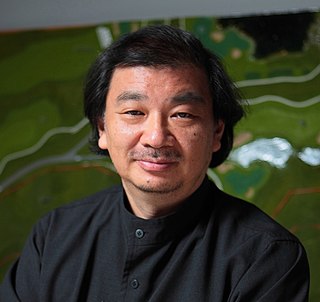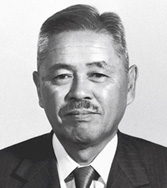A Quote by Norbert Elias
Very often people who live in a ghetto accept some of the stigmatisation against them. I mention the case of a Japanese minority the Burakumin, which was pure Japanese in descent, but which was concerned with dirty work: leather work, cadavers, and some other things.There was a famous story of an old man who asked: 'Do you yourself believe you are the same as the Japanese?' And the outsider said: 'I do not know, we are dirty.' This kind of conscience was never there in the surroundings in which I lived. One always felt as someone whom could be proud of, being both German and Jewish.
Quote Topics
Accept
Against
Always
Asked
Be Proud
Being
Believe
Both
Cadavers
Case
Concerned
Conscience
Could
Descent
Dirty
Dirty Work
Famous
Felt
German
Ghetto
Japanese
Jewish
Kind
Know
Leather
Live
Lived
Man
Mention
Minority
Never
Often
Old
Old Man
Other
Outsider
People
Proud
Pure
Said
Same
Some
Someone
Story
Surroundings
Them
Things
Very
Which
Whom
Work
Yourself
Related Quotes
My mother, she's the one who's gifted with language. She can speak Japanese, of course, Tagalog, which is a Filipino dialect, Spanish as well as English. And I speak a little bit Japanese because I've had the opportunity to work alongside Japanese people. And a little bit of German, a little bit of Portuguese because of work. A little bit of French because of work. But then, if you asked me to carry-on an everyday conversation, I would fail miserably.
Pride in one's own race - and that does not imply contempt for other races - is also a normal and healthy sentiment. I have never regarded the Chinese or the Japanese as being inferior to ourselves. They belong to ancient civilizations, and I admit freely that their past history is superior to our own. They have the right to be proud of their past, just as we have the right to be proud of the civilization to which we belong. Indeed, I believe the more steadfast the Chinese and the Japanese remain in their pride of race, the easier I shall find it to get on with them.
As well as Japanese animation, technology has a huge influence on Japanese society, and also Japanese novels. It's because before, people tended to think that ideology or religion were the things that actually changed people, but it's been proven that that's not the case. Technology has been proven to be the thing that's actually changing people. So in that sense, it's become a theme in Japanese culture.
Many Japanese families moved to Taiwan during the occupation. Then, when the war ended, they were forced to move back. And at the macro level, the Taiwanese had every reason to cheer when the Japanese left. The Japanese military could often be incredibly brutal. The Taiwanese lived as second-class citizens on their own land.
My job the same as carpenter. What kind of house you want to build? What kind of food you want to make? You think your ingredients, your structure. Simple. [Other] Japanese restaurants … mix in some other style of food and call it influence, right? I don't like that. … In Japanese sushi restaurants, a lot of sushi chefs talk too much. 'This fish from there,' 'This very expensive.' Same thing, start singing. And a lot have that fish case in front of them, cannot see what chef do. I'm not going to hide anything, right?
Japanese train signs, station signs, are really representative of the Japanese mind to me, because it always has the station where you are, the station you were previously at, and the station that is the next station. When I came to New York, I was very confused. It just doesn't say where I was and where I was going. But I realized after a while probably most people don't need to know what station you were previously at. But I think it's just some weird Japanese mentality that we need to know, we need to connect the plot.
It is sobering to recall that though the Japanese relocation program, carried through at such incalculable cost in misery and tragedy, was justified on the ground that the Japanese were potentially disloyal, the record does not disclose a single case of Japanese disloyalty or sabotage during the whole war.






































